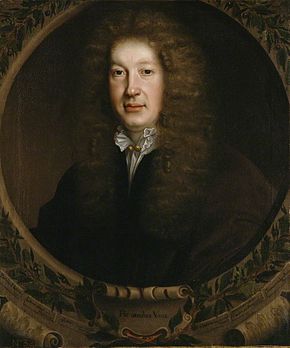After our ësop's fable shown to-day,
I come to give the moral of the play.
Feign'd Zeal, you saw, set out the speedier pace:
But the last heat, Plain Dealing won the race:
Plain Dealing for a jewel has been known;
But ne'er till now the jewel of a crown.
When Heaven made man, to show the work divine,
Truth was His image stamp'd upon the coin:
And when a king is to a god refined,
On all he says and does he stamps his mind:
This proves a soul without alloy, and pure;
Kings, like their gold, should every touch endure.
To dare in fields is valour; but how few
Dare be so thoroughly valiant,--to be true!
The name of great let other kings affect:
He's great indeed, the prince that is direct.
His subjects know him now, and trust him more
Than all their kings, and all their laws before.
What safety could their public acts afford?
Those he can break; but cannot break his word.
So great a trust to him alone was due;
Well have they trusted whom so well they knew.
The saint, who walk'd on waves, securely trod,
While he believed the beckoning of his God:
But when his faith no longer bore him out,
Began to sink, as he began to doubt.
Let us our native character maintain;
'Tis of our growth to be sincerely plain.
To excel in truth we loyally may strive,
Set privilege against prerogative:
He plights his faith, and we believe him just;
His honour is to promise, ours to trust.
Thus Britain's basis on a word is laid,
As by a word the world itself was made.
Epilogue To "albion And Albanius."
John Dryden
(1)
Poem topics: alone, believe, heaven, walk, work, world, soul, crown, king, play, mind, pure, privilege, doubt, touch, true, gold, endure, character, public, Print This Poem , Rhyme Scheme
Submit Spanish Translation
Submit German Translation
Submit French Translation
<< To Mr Southerne, On His Comedy Called "the Wives' Excuse." Poem
Veni Creator Spiritus, Paraphrased Poem>>
Write your comment about Epilogue To "albion And Albanius." poem by John Dryden
Best Poems of John Dryden
